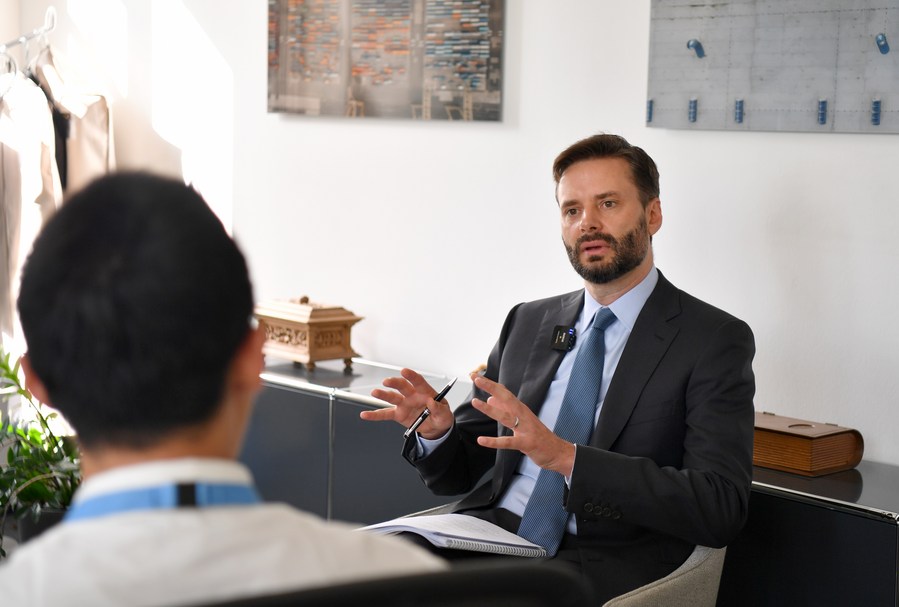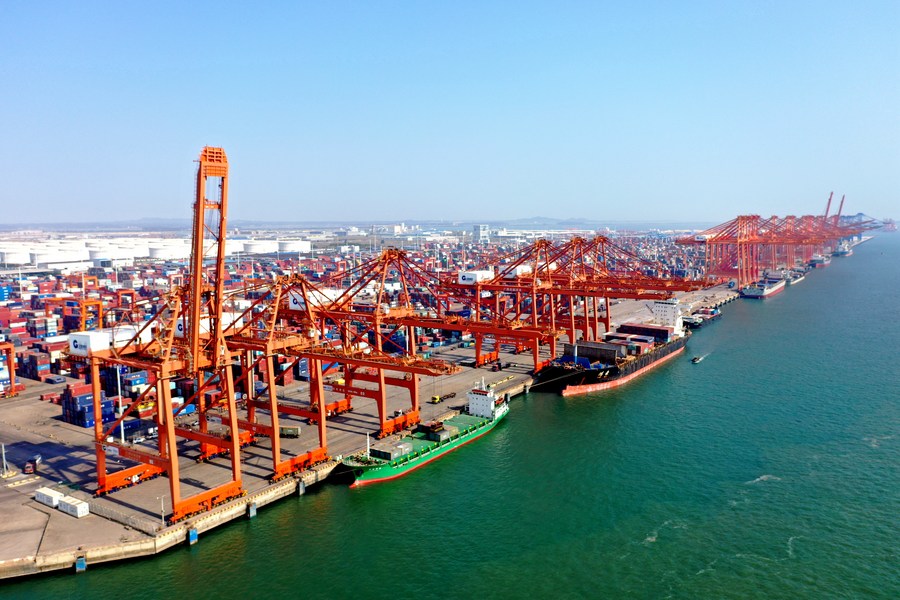

World Trade Organization (WTO) chief economist Ralph Ossa speaks during an interview with Xinhua at the WTO headquarters in Geneva, Switzerland, Sept. 12, 2023. (Xinhua/Lian Yi)
"Globalization is really at a crossroads," as the tide is turning against it, but there's still time to act, said Ralph Ossa, chief economist of WTO.
GENEVA, Sept. 13 -- "Re-globalization is in our common interest," Ralph Ossa, chief economist of the World Trade Organization (WTO), told Xinhua in a recent interview.
According to Ossa, re-globalization means increased international cooperation and broader integration and is key to addressing the pressing challenges of our time and to building a secure, inclusive and sustainable future.
On Tuesday, the WTO published the 2023 edition of the World Trade Report. This flagship document presents new evidence of the benefits of broader, more inclusive economic integration as early indications of trade fragmentation threaten to unwind growth and development.
The report aims at challenging the rising trade-skeptic narrative, which suggests that international trade is an obstacle to building a more secure, inclusive and sustainable world, he said. Such narrative is "fundamentally different from the narrative that has been guiding trade policymaking since 1947."
"Globalization is really at a crossroads," as the tide is turning against it, but there's still time to act, he said.

This aerial photo taken on Feb. 23, 2023 shows the Qinzhou Port in south China's Guangxi Zhuang Autonomous Region. (Xinhua)
Trade policy tensions are on the rise and the first signs of fragmentation along geopolitical lines are already visible, but overall trade is holding up strong, hence the talk of de-globalization is certainly exaggerated, he noted.
"The economic costs of fragmentation are going to be large," Ossa said. A simulation made by WTO economists suggests that in the worst-case scenario of full geopolitical rivalry, global incomes on average will fall by 5 percent, and trade flows on average will fall by 13 percent, he added.
To maintain peace and security, to reduce poverty and inequality, and also to achieve a sustainable economy, "we need to embrace trade and not reject it ... we also need a multilateral trading system," he stressed.
According to the chief economist, the WTO's Trade Facilitation Agreement, which entered into force on Feb. 22, 2017, has increased trade by 231 billion U.S. dollars. These gains have particularly accrued to developing countries, indicating that the agreement takes important steps towards re-globalization, he said.

Visitors taste whisky at the booth of Japan during the 2023 China International Fair for Trade in Services (CIFTIS) at China National Convention Center in Beijing, capital of China, Sept. 4, 2023. (Xinhua/Liu Mengqi)
Speaking of China's role in the re-globalization process, Ossa said that China is a supporter of the multilateral trading system and also of globalization.
China has benefited from participating in the multilateral trading system and has achieved spectacular economic growth, lifting millions of people out of poverty, thereby giving hope to developing countries around the world, he added.












